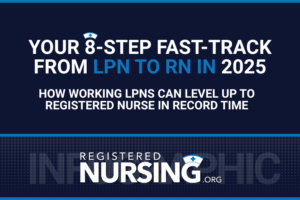The Importance of the Nurse-Patient Relationship for Patient Care

Taking care of patients can be rewarding and fulfilling. However, sometimes it can also be emotionally and physically draining. Nurses work in patient care, but also in customer service. Maintaining a professional, courteous interpersonal relationship can be challenging. However, it can be critical in a patient’s overall health and well-being.
Establishing a healthy nurse-patient relationship is vital. Nurses should greet the patient by name, make eye contact, and display confidence and professionalism. They should explain everything they will be doing and review the plan of care, making sure to involve them in decision making. Maintaining patient privacy is also essential. For some patients, touch is a way to demonstrate compassion and caring, but nurses should be aware of personal boundaries, as some patients prefer not to be touched. Remaining culturally sensitive as well is vital; providing handouts and patient information in a patient’s primary language should be offered, as well as an interpreter if needed. These essential items help to develop trust and open the lines of communication.
How Do Trust and Communication Help Patients?
When patients seek health care services or are hospitalized, many are unfamiliar with the process or what to expect. They may be apprehensive about what's to come and not understand the medical jargon. For some, being spoken to using medical terminology is like a foreign language. Imagine being in a foreign country with people talking to you, and you have no idea what is being said. One can feel helpless and out of control, which may lead to anger or resistance to learning. Suppose a healthy nurse-patient relationship is established from the get-go. In that case, the nurses can help the patient feel more at ease in their situation, encourage questions and participate in their care.
RELATED: Beyond the Bedside: Nurse Navigator
Nurses must get buy-in from patients when it comes to their care. As any nurse will tell you, working with a non-compliant patient is nearly impossible. Little to no improvement is made. Encouraging participation and educating patients is paramount. As stated earlier, establishing a healthy nurse-patient relationship is essential as the first step to opening the lines of communication. Communication must be ongoing and involve patient education. For example, a non-compliant diabetic may believe skipping meals helps lower blood sugar. A nurse can take the opportunity to explain the importance of regular meals and snacks and explain what happens physiologically when meals are skipped in diabetic patients. The patient may not know. Education can lead to better compliance and patient engagement and improve patient care outcomes. In this example, improved blood sugar and A1C levels.
RELATED: What Are Some Ways Nurses Can Influence Healthcare Organization Costs?
Nurses are on the front lines of health care. They become experts at establishing relationships with patients and can do so without a second thought. A healthy nurse-patient relationship built on trust and respect goes a long way in improving a patient's overall health.



10 Helpful Methods for Improving Nurse-Patient Relationships
Building strong nurse-patient relationships is essential for providing effective care and promoting positive patient outcomes. Here are several helpful methods for improving nurse-patient relationships:
- Active Listening: Practice active listening by giving your full attention to the patient, maintaining eye contact, and paraphrasing what they say to ensure understanding. This demonstrates empathy and shows the patient that their concerns are being heard.
- Empathy and Compassion: Show empathy and compassion towards patients by acknowledging their emotions, validating their experiences, and offering support. Understanding their perspective can help build trust and rapport.
- Communication Skills: Develop strong communication skills, including verbal and nonverbal communication, to effectively convey information, answer questions, and address concerns. Clear and open communication fosters trust and reduces anxiety.
- Respect and Dignity: Treat patients with respect and dignity at all times. Use polite language, address them by their preferred name, and involve them in decision-making regarding their care. Respect their cultural beliefs and values.
- Cultural Competence: Enhance your cultural competence by learning about different cultural practices, beliefs, and values. Be sensitive to cultural differences and tailor your approach to each patient’s cultural background.
- Patient Education: Provide patient education to empower patients to participate in their own care and make informed decisions. Explain procedures, treatments, and medications in a clear and understandable manner, and encourage patients to ask questions.
- Trustworthiness and Reliability: Build trust with patients by being reliable, dependable, and transparent. Follow through on commitments, keep patients informed about their care plan, and address any concerns or issues promptly.
- Professional Boundaries: Maintain professional boundaries while still demonstrating warmth and compassion. Respect patients’ privacy and confidentiality, and avoid sharing personal information about yourself.
- Collaborative Care: Involve patients in their care by encouraging collaboration and shared decision-making with other healthcare team members. This fosters a sense of partnership and promotes patient-centered care.
- Follow-up and Continuity: Follow up with patients to ensure continuity of care and to address any ongoing concerns or needs. This demonstrates your commitment to their well-being and helps strengthen the nurse-patient relationship over time.
By implementing these methods, nurses can cultivate strong, trusting relationships with their patients, leading to improved satisfaction, better adherence to treatment plans, and ultimately, better health outcomes.

